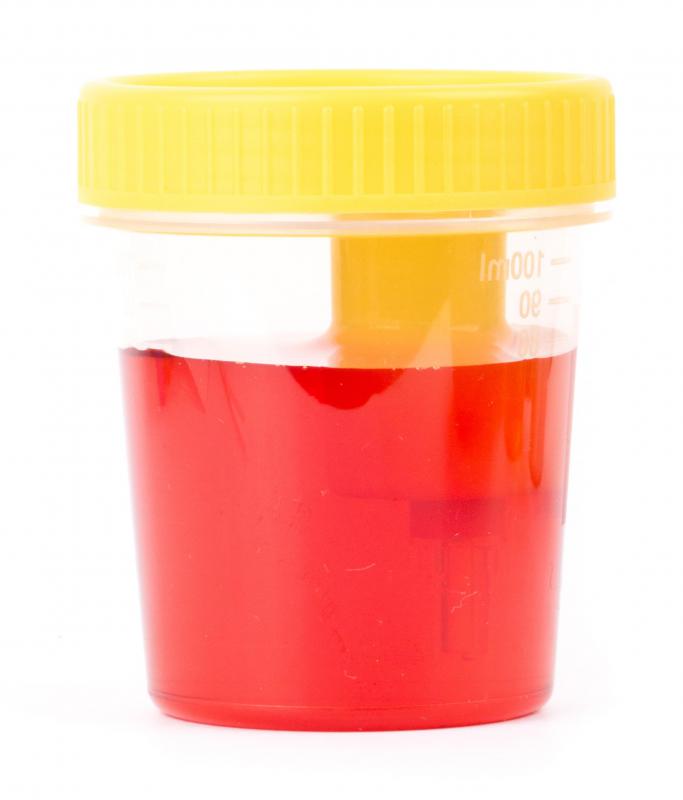At WiseGEEK, we're committed to delivering accurate, trustworthy information. Our expert-authored content is rigorously fact-checked and sourced from credible authorities. Discover how we uphold the highest standards in providing you with reliable knowledge.
What is Calcium Oxalate?
Calcium oxalate is a chemical compound often responsible for kidney stones, small aggregations of minerals that can appear anywhere in the urinary tract. Stones can create a blockage, making it difficult and painful to urinate. Treatment for kidney stones can include receiving medications to make it easier to pass them or surgery to remove the stones if they are too large for a patient to be able to pass safely. There are also some preventative measures people can take.
Kidney stones, including calcium oxalate crystals, form when there are imbalances in a patient's blood and urine chemistry. In healthy people, the minerals people absorb through food and drink work their way into the kidneys, and the body can safely expel them. The kidneys try to maintain a chemical balance to inhibit stone formation. When people have imbalanced diets or health problems, calcium oxalate crystals can start to build up. As they grow, the crystals provide a matrix for other materials to grow on, leading to a small mass.

In people with small calcium oxalate stones, it may be possible to see them in a urine sample. The presence of high levels of calcium oxalate or very small crystals in the urine is a sign of a problem. The doctor may perform some tests and conduct a patient interview to find out why stones are forming. Treatments can include dietary recommendations and medications. Sometimes, patients need to start filtering water to avoid highly mineralized water.

If a doctor doesn't catch the stones early, the patient may experience the growth of larger stones that create obstructions in the urinary tract. This can result in intense pain, abdominal swelling, difficulty urinating, and bloody or cloudy urine. Patients may need emergency treatment to address the problem. Medical imaging studies can reveal stones in the urinary tract, and the doctor may perform a cystoscopy to look directly into the bladder and determine if it is possible to remove stones that way before recommending more invasive surgical procedures.

People concerned about calcium oxalate crystal formation should make sure to eat a balanced diet with plenty of calcium. Although it may seem counterproductive to consume more calcium in order to prevent stone formation, research suggests that low calcium is what contributes to the oxalate buildup in the kidneys. In people with a family history of stones, it may be helpful to meet with a doctor to discuss other preventative care measures.
AS FEATURED ON:
AS FEATURED ON:
















Discuss this Article
Post your comments